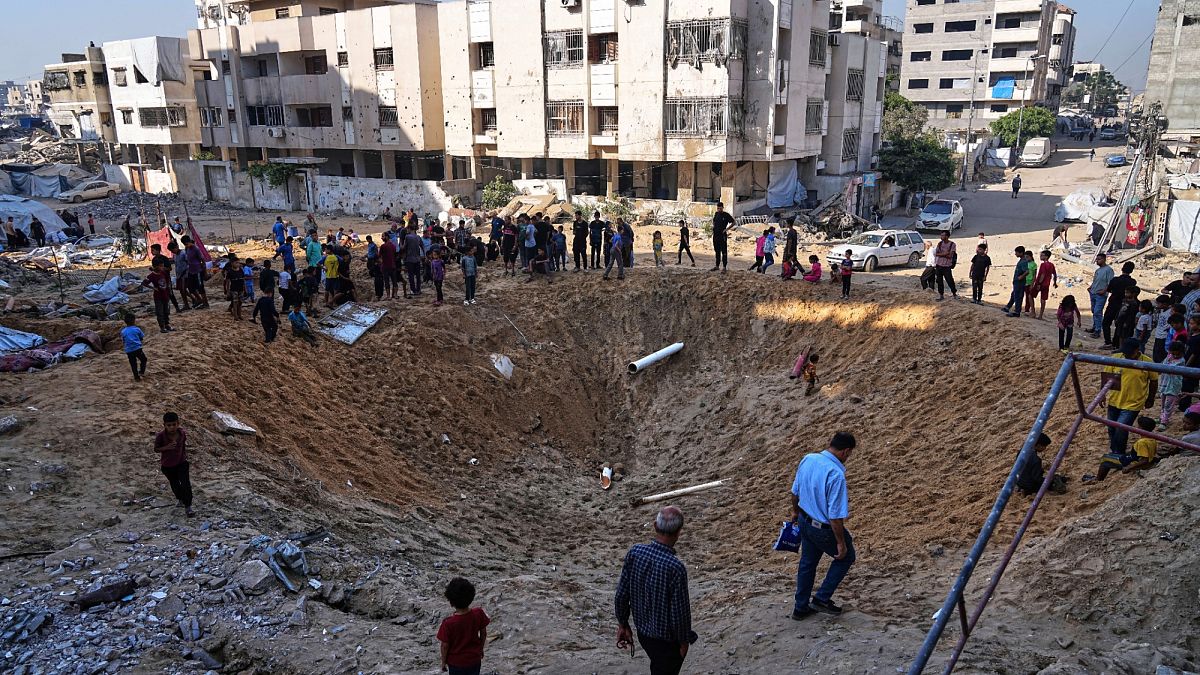

The ongoing tensions and conflicts in several regions highlight the challenges and complexities the international community faces in striving for peace and humanitarian relief. Recent updates from the Middle East and Ukraine provide a window into the current situations affecting these areas.
In the Gaza Strip, more than 60 Palestinians have reportedly lost their lives due to Israeli airstrikes over the weekend. Health officials in Gaza have confirmed these tragic events as the region continues to grapple with a worsening humanitarian crisis. Despite renewed discussions on achieving a ceasefire, the violence has persisted, with airstrikes targeting areas near shelters and displacement camps, further exacerbating the suffering of the Palestinian people.
Adding to the tensions in the Middle East, a significant state funeral was held in Iran for several prominent figures, including IRGC Chief General Hossein Salami, who were recently killed in the conflict with Israel. This mass gathering in Tehran saw hundreds of thousands in attendance, underscoring the profound impact of the conflict on the region’s sociopolitical landscape.
The humanitarian situation in Gaza has prompted concern and critique from various corners of the international community. The United Nations Secretary-General, António Guterres, has voiced criticism of a U.S.-backed aid system in Gaza, describing it as perilously ineffective and highlighting its role in endangering lives. Notably, Médecins Sans Frontières (MSF) has characterized the current food distribution scheme as “slaughter masquerading as humanitarian aid,” urging for immediate changes to the system.
In response to growing evidence of civilian casualties in areas near aid distribution sites, the Israel Defense Forces (IDF) have initiated an inquiry into potential war crimes. This investigation focuses on allegations of deliberate harm to civilians during aid distribution efforts, emphasizing the need for accountability and transparency in military operations.
Turning our attention to Ukraine, the country has endured a series of missile and drone attacks attributed to Russian forces, resulting in the loss of at least 10 lives and injuring over 50 individuals. Multiple regions across Ukraine have been affected, demonstrating the ongoing volatility and risks associated with the conflict between Russia and Ukraine. The continued attacks highlight the urgent need for conflict resolution and humanitarian assistance for those affected by the violence.
As we navigate these complex crises, calls for peace and diplomacy resonate more urgently across the international arena. Qatar has emerged as a proponent for peace talks to resolve issues in Gaza, encouraging dialogue and negotiation as pathways toward stability. Meanwhile, Emirates, a Dubai-based airline, has adjusted its flight operations in recognition of the regional tensions, temporarily halting flights to certain areas in response to safety concerns.
The global community remains hopeful that through sustained diplomatic efforts and international cooperation, pathways to peace and humanitarian aid can be strengthened to alleviate the suffering of those caught in the crossfires of conflict. The pursuit of lasting peace, built on mutual understanding and respect, is an overarching goal that continues to guide and inspire efforts amid these challenging times.
Source: {link}
